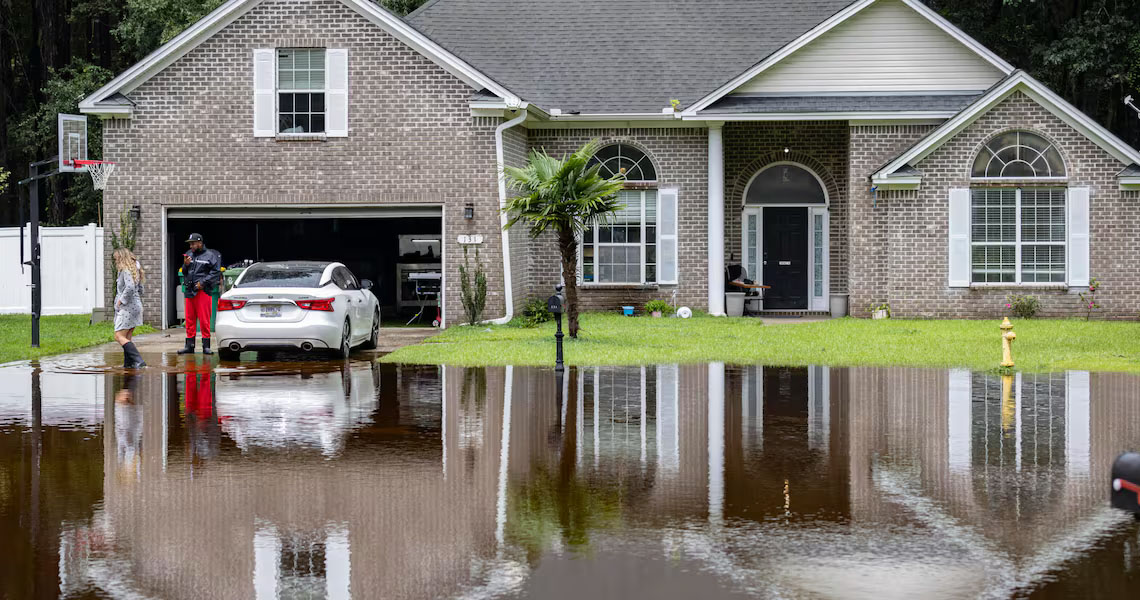
Photo Credit: Getty Images
Tropical Storm Debby made its second landfall early Thursday morning near Bulls Bay, South Carolina, as it continued to drench the coastal regions of South and North Carolina with relentless rainfall. The storm, which had already pummeled Florida's Gulf Coast as a Category 1 hurricane on Monday, has left a trail of devastation as it slowly crawled across the southeastern United States.
After slamming into northern Florida and moving through Georgia, Debby reached the Atlantic Coast, where it was downgraded to a tropical depression by the National Hurricane Center (NHC). Despite the downgrade, the storm's impact remains significant, with wind gusts reaching up to 35 mph (56 kph) and heavy rains exacerbating fears of flash flooding in already waterlogged areas.
The storm's trajectory placed it about 45 miles (72 km) east of Charlotte, North Carolina, by late Thursday afternoon. The NHC warned that Debby could spawn tornadoes in North Carolina and Virginia, particularly in areas south of Washington, D.C., posing further threats to communities already battered by severe weather.
Rainfall has been intense and continuous, with the NHC reporting an additional 3 inches (7 cm) of rain expected in parts of eastern South Carolina on Thursday. Some areas have already received more than 25 inches (64 cm) since Monday, while southeastern North Carolina could see totals reaching 15 inches (38 cm), and Virginia up to 10 inches (25 cm).
South Carolina Governor Henry McMaster urged residents to remain vigilant despite no reported storm-related deaths in the state as of Thursday afternoon. "It's not over yet. We've passed some dangers, but there are still plenty, so don't let your guard down yet," McMaster cautioned during a press conference, highlighting the ongoing risk of river flooding.
Debby's influence is set to extend beyond the Carolinas, with forecasts indicating it will drench areas from Maryland through upstate New York and Vermont over the coming days. Although the rainfall in these regions is expected to be moderate, it still poses risks, especially in flood-prone areas. New York City, however, is likely to avoid the worst of the storm, according to weather service forecaster Josh Weiss.
The storm's destructive path has already claimed at least seven lives. In Wilson County, North Carolina, a tornado spawned by Debby led to the collapse of a house, killing one man and damaging at least ten other homes, as well as a church and a school. The threat of more tornadoes looms as Debby continues its journey.
Power outages have also plagued the region, with over 87,000 customers without electricity in North Carolina and Virginia by Thursday afternoon, according to Poweroutage.us.
In Georgia, the situation remains dire as well. Four dams burst in Bulloch County on Wednesday due to floodwaters, and officials warned that the Cypress Lake Dam was at risk of failure on Thursday morning. This prompted the evacuation of local residents as flooding made roads impassable and homes were inundated.
As Debby continues to weaken and move northward, the focus will shift to recovery and damage assessment. However, the storm's legacy of destruction serves as a stark reminder of the power and unpredictability of nature.
















